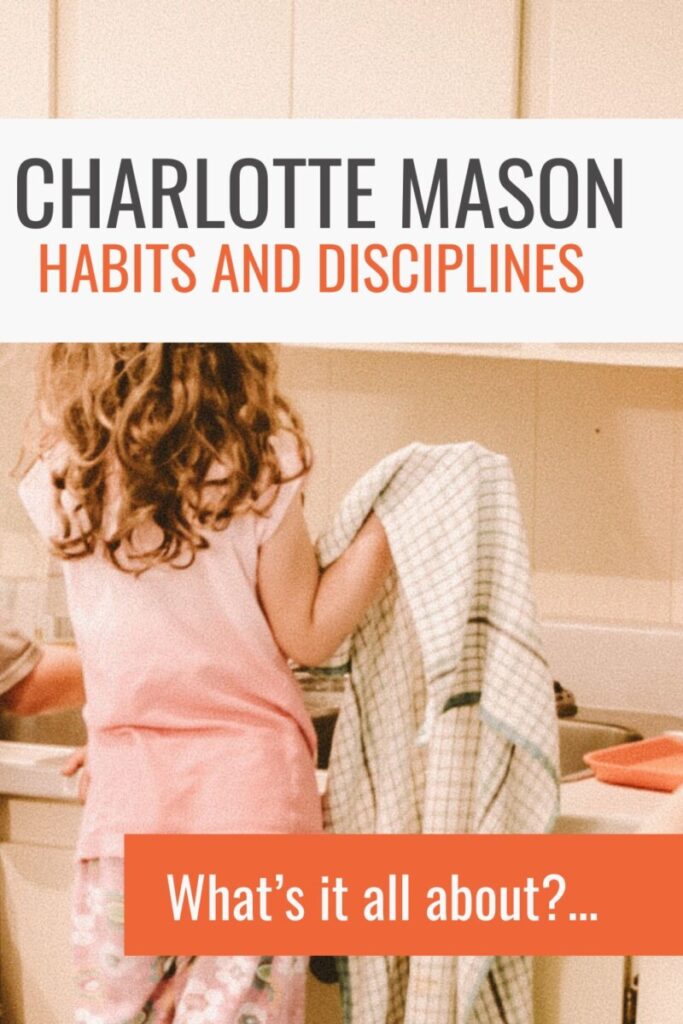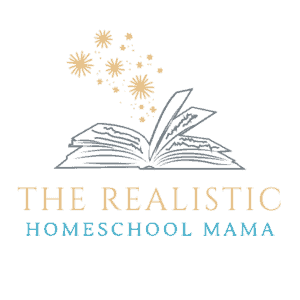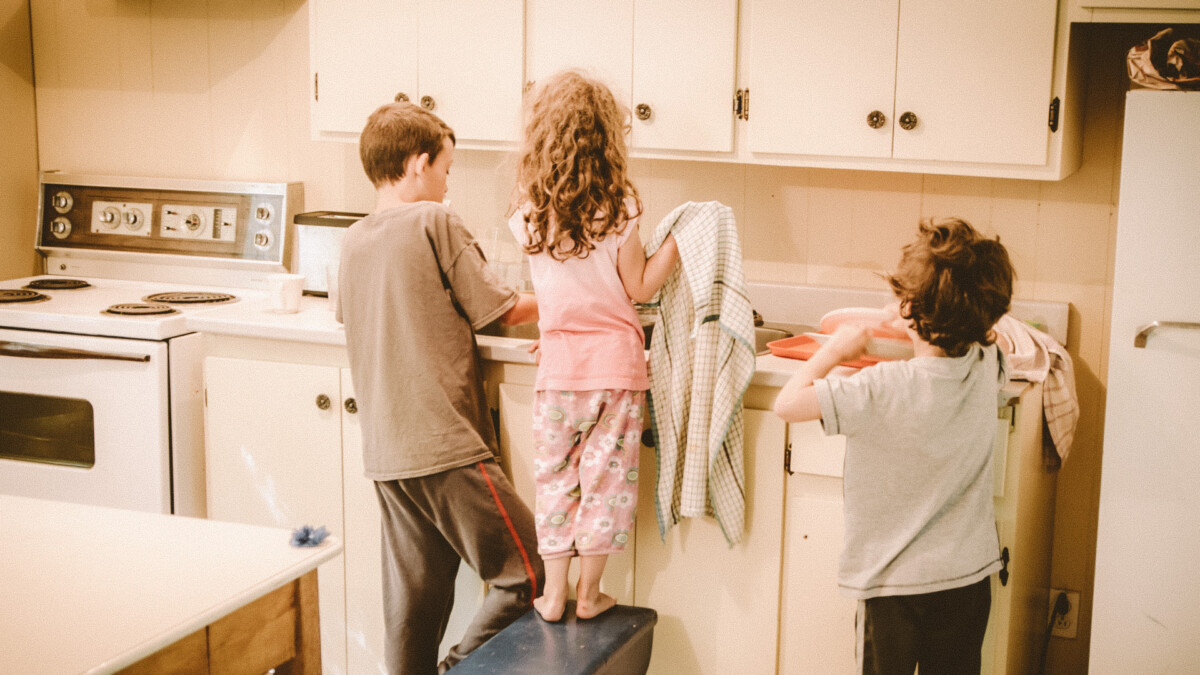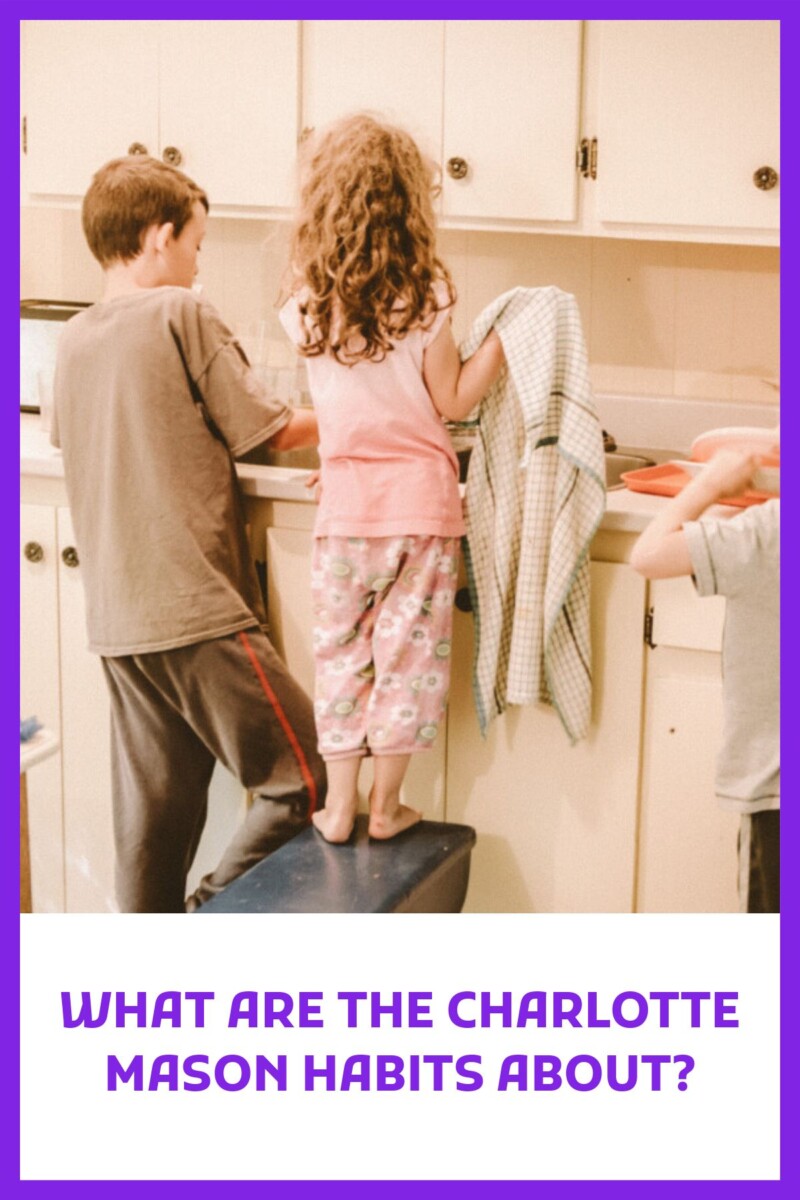There are a LOT of things about the Charlotte Mason method of homeschooling that appeal to me. However, the theory of intentionally developing good habits in your children is one that I admittedly struggle to implement. I tend to be very much a “go with the flow” type of person, and consistency is not always my strong suite. However, when I learned about the Charlotte Mason habits, it really struck a chord with me. I can see the power and value in such a discipline and am working on implementing it more and more into my family’s life.
So, what What are the Charlotte Mason Habits about?
The Charlotte Mason habits are based on the belief that cultivating discipline in a child is one of the foundations of a well-rounded education. By “Discipline,” Charlotte meant the discipline of good habits—most specifically habits of character. Mason taught that cultivating good habits in your child’s life should make up a third of their education.
A Charlotte Mason education is three-pronged: in her words, “Education is an Atmosphere, a Discipline, a Life.” In this post, we will take a look at the “discipline” part, or in other words, instilling habits.
Charlotte Mason’s Habit Training Wisdom
One of the most important things that parents can do for their children is to teach them good habits. This was the belief of Charlotte Mason, an early educator from the early 1900s. She believed that the foundation for knowledge didn’t begin in the classroom, but rather in the teaching of good habits at home.
She explains, “The mother who takes the pains to endow her children with good habits secures for herself smooth and easy days.”
According to Mason, the three most important habits to teach children are attention, truthfulness, and obedience. These habits are the foundation upon which all other learning is built. A child who is attentive and obedient is more likely to succeed in school and in life.
While some may see habit training as a chore, Mason believed that it was a crucial part of a child’s education. By teaching children good habits, we are setting them up for a lifetime of success.
If you are brand new to the entire Charlotte Method philosophy, you may want to go back and read this post first, where I cover some more of the basics.

Instilling Good Habits in Our Children
“Whether habits are planned and created conscientiously, or allowed to be haphazardly filled in by chance, they are habits all the same. Habit rules ninety-nine percent of everything we do.”
Charlotte Mason
Most of us are creatures of habit. We like routines and predictability. It makes us feel safe and secure. Habits can be good or bad, but either way, they rule our lives.
Think about it. How many things do you do each day without even thinking about it? You brush your teeth, get dressed, make breakfast, etc. These are all habits that you’ve formed over time.
Habits are so powerful because they are automatic. Once we form a habit, we don’t have to think about it anymore. It becomes part of our daily routine.
The problem is that bad habits can be just as hard to break as good habits are to form. That’s why it’s so important to be mindful of the habits we form.
Good Habits are Chosen by US, the Parents
“In the hands of the mother, is as his wheel to the potter, his knife to the carver—the instrument by means of which she turns out the design she has already conceived in her brain.”
Charlotte Mason
It’s no secret that good habits are important for kids. But what’s often overlooked is that the habits kids learn are largely determined by their parents.
As the old saying goes, “As the twig is bent, so the tree will grow.” In other words, what children learn from their parents will shape their habits as adults.
Of course, there are many factors that contribute to a child’s development, but there’s no doubt that parents play a key role in shaping their kids’ habits.
So, what can parents do to instill good habits in their children?
One important thing is to lead by example. Kids are like sponges, they absorb everything around them. So if you want your kids to develop good habits, it’s important to model those habits yourself.
Another way to instill good habits in kids is to make them fun. If kids see that they can have fun while doing something good for themselves, they’re more likely to stick with it.
Finally, it’s important to be consistent with good habits. If you want your kids to develop a habit of brushing their teeth twice a day, for example, you need to make sure they brush their teeth every day, without exception.
Developing good habits is important for kids, but it’s also important for parents to model those same habits. By leading by example and making good habits fun, parents can help their kids develop healthy habits that will last a lifetime.
*Be sure to read my post about the difference in a classical education and a Charlotte Mason education HERE.
Creating Good Habits Requires Intentional Focus
“It takes a few weeks of work to build a new habit. Once the habit is in place, it must be guarded diligently to prevent a reversion to the old ways, but keeping watch is not stressful or difficult once the new habit is secure.”
Charlotte Mason
We quickly discovered the hard work that went into establishing good habits when we insisted that our kids stayed in their beds for the night. Consistently walking them back to their bed after the twentieth request to quench their thirst or relieve their fears became our new normal.
But it wasn’t just our kids who needed help forming new habits. We quickly realized that we, too, needed to be intentional about the habits we wanted to form.
It takes a few weeks of work to build a new habit. Once the habit is in place, it must be guarded diligently to prevent a reversion to the old ways, but keeping watch is not stressful or difficult once the new habit is secure.
We all have areas in our lives where we could benefit from building new, good habits. It may be helpful to start with just one or two new habits at a time. Identify the trigger that will remind you to do the new behavior and then focus on making the new behavior as easy as possible to do.
With a little effort, we can all upgrade our lives by intentionally building good habits.
Freedom is Created Through Habits
“The point of training children to have good habits is so that they’ll do things without being nagged, or scolded. Then the mother isn’t constantly chasing them down with a barrage of commands and reminders. She can leave them alone to thrive in their own way, once a habit has secured a boundary for them to grow in.”
Charlotte Mason
As our kids get older, we’re starting to see the benefits of setting boundaries and instilling good habits. Our kids are learning that there are certain things they can do that come with certain privileges and responsibilities.
For example, just the other day, we had the garage door open and our kids were riding bikes. They knew not to cross the line we had established as ‘too close’ to the road. My two-year-old, however, still needed my constant watch because he hasn’t earned the freedom to explore that comes from the learned boundary.
Good habits give freedom – both to the person learning them and to the people around them. By setting boundaries and teaching good habits, we’re helping our kids become more responsible and independent individuals.
Laying a Good Foundation
Laying a good foundation is essential to raising well-rounded and successful children. As parents, we often focus on the big things – getting them into the best schools, making sure they eat healthy, and teaching them right from wrong.
But it’s the little things we do every day that really make a difference. The way we interact with our children, the example we set, and the habits we teach them are all crucial in laying a solid foundation for their future.
Sure, it’s not always easy. Trust me, I know! But the pay-off is more than worth it.
So let’s keep doing the hard work, knowing that we are making a real difference in our children’s lives.
Recent Posts
The freedom to educate our own children in the whatever method we see best suited to their needs is a freedom I do not take lightly, and am eternally grateful for. SO much is available to us, and...
Over the years, I've explored many different homeschool methods and philosophies. While there are definitely benefits to many, I have especially fallen in love with the Charlotte Mason method of...



